Expectations and Mediocrity
Terry Odell
 Recently, James Scott Bell posted an article about whether writers should write mediocre books. Having just completed a book that’s on the fringes of my normal writing genre, I’d been struggling with the “is it good enough?” question. Given my primary goal in writing this book was to be able to use my recent trip to the Faroe Islands as a tax write-off, I had to resist the urge to crank something out quickly, just to have something to wave at an IRS auditor should they question the validity of my deductions.
Recently, James Scott Bell posted an article about whether writers should write mediocre books. Having just completed a book that’s on the fringes of my normal writing genre, I’d been struggling with the “is it good enough?” question. Given my primary goal in writing this book was to be able to use my recent trip to the Faroe Islands as a tax write-off, I had to resist the urge to crank something out quickly, just to have something to wave at an IRS auditor should they question the validity of my deductions.
I couldn’t. I needed to write something I’d be proud to have my name on. Not something that might have a reader crossing me off their reading list.
JSB’s post reminded me of frequent discussions I have with my son, who’s a photographer.
Our trip to the Faroes, wonderful as it was (There were Puffins! And waterfalls! And striking landscapes! and sheep!), led to discussions with both my son and the organizer of the tour.
- Puffin with fish
- Suðuroy oceanscape
- Suðuroy sea stacks
- Vágar waterfall
- Mykines village
- Suðuroy sheep
Now, I’m no spring chicken, but I think (or thought) I was in decent physical shape. The description of the photography tour/workshop said most days would be “easy walks, gentle hikes.” There was one day, they said, that would be longer and more strenuous, but the views would be worth it. My expectations were nothing like the actual efforts required for almost every shooting venue.
Granted, the weather increased the efforts required. We had rain, which made the uneven terrain muddy and slippery. Add schlepping camera gear, and those of us in the over 70 group were challenged.
My “solution” was to minimize the gear I carried. Never mind that the tour organizer said, “Bring everything” almost every time we got out of the van, I opted to leave almost all of my gear behind. Not once did I use my tripod to get wonderful long-exposure shots. Only once did I bother with a polarizing filter. It was damp, drizzly, and sometimes the drizzles were more like light rain. I didn’t want to go to the trouble of changing lenses, or adding and then removing filters when everything was getting wet. My main lens was water sealed, but raindrops on the lens mess up one’s shots. Most of the dedicated photographers in the group, however, did make these extra efforts.
Getting back to the point I made with my son, and also the tour operator who seemed surprised when I told him my favorite site (other than the puffins, of course) was a stop at a lighthouse. The van parked maybe a five minute walk away. The ground was relatively level. And there was more to photograph than waves crashing against sea stack.
- Suðuroy Lighthouse
- Suðuroy Green door
- Suðuroy lighthouse window
- Suðuroy Windows
Of course, had I been a serious photographer, I’d have been content to have my camera set on its tripod, and sit around waiting for the light to change for the better. But I’m a writer with a photography hobby. Not a serious photographer. I belong to a book club, not a camera club. He was also surprised when I told him that on day 3, I had under 300 images on my memory card. He probably had 3000.
Although I had much of the suggested equipment, I decided it wasn’t worth dealing with given the effort required to get to the designated shooting area. Yes, I hiked the 7 kilometer round trip to get to the top for the “hanging lake” iconic shot. Uphill. Through mud. Slippery grass.

Photo by Jason P. Odell

Lake Leitisvatn, Sørvágsvatn, Faroe Islands
No, I didn’t climb even further for a ‘better’ view. Most of those ended up being one shot. Nor, after that day, had I any desire to go on yet another hike to get a sunset shot. (Note: this time of year, sunset is around 10 PM). Did I feel guilty? Did I regret it? Nope.
My son and the tour organizer are photographers. Their reputations and their business depends on people seeing photos that say, “If you come on one of my tours, you, too, will be able to get photos like this one.” Putting out a mediocre shot will do more harm than good.
How does this relate to writing? Ah—maybe she’s getting to the point! Putting out a mediocre book isn’t going to help my career or my reputation. Taking photographs that are acceptable to me to put on my website’s photography section is my goal. Heck, the odds are the vast majority of people looking at them are seeing them on their phones.
It all boils down to audience and expectations.
If you’re going to a photography website, you want to be impressed with the images. You’re probably interested in photography as much as looking at striking pictures.
My audience is readers more than anything else. Do they like my photos? Feedback says they do.
But … think about how many mediocre books get stellar reviews. Do readers really know what makes an outstanding book? If I had decided to crank out a down-and-dirty novel based on a trip I took, would my readers know?
Some would, of course. But how many would praise the book for any number of reasons that had little to do with the quality of the writing? My guess (assuming they take the time to write a ‘review’—but that’s another story) is quite a few. People are praising the schlock put out by AI.
Something that can help a book rise above the mediocre level is editing. As authors, we have a myriad tools available: critique partners, beta readers, professional editors, and a variety of software options. How far we choose to go is up to us.
Did you like the photos I shared above? I worked on them to a small degree. Nothing fancy when taking the pictures, and minor tweaks using Lightroom software. In the context of writing, these would be chapters I asked my critique partners to look at. I used my writing skills to create the chapters (taking the picture) and then applied my parnters’ feedback (where I agreed with it) to enhance the words.
Compare this to a professional photographer’s efforts. In this case, the photographer applied his knowledge and skills to set up his shot. These are the ‘tools’ he used:
Camera: OM System OM-1 Mark 2
Lens: Olympus 8-25mm f/4 PRO
Exposure Data
1.6” f/8 ISO 400
Shot at 8mm (16mm full-frame equivalent)
Tripod + Polarizing filter

Drangarnir, Faroe Islands, Photo by Jason P. Odell
But he wasn’t finished. While he doesn’t use “betas” because he knows what he’s doing, he has his editing toolbox, which includes Lightroom and Nik Color Efex, which he used for this final edited version.

Makes mine look mediocre, doesn’t it? Did you change your opinion of my images?
**Want to see more of his images? Go to Luminescent Photo.
Bottom line for me: people bring their own expectations and experiences to whatever product they’re looking at. If they’re reading a book by a best-selling author, odds are most of them are predisposed to assume it’s going to be great. And many—probably very many—of them don’t really know how to judge quality. One of the things I’ve noticed in the book clubs I’ve belonged to, is that readers don’t read like writers. When I mention that I found the author’s use of having more than one character in a paragraph with dialogue distracting, none of them were aware there was a “convention” of One Speaker Per Paragraph. It’s always interesting to see what they notice—and what they don’t.
What about you, TKZers? Anything you’ve noticed getting raves when it falls into your definition of mediocrity? Or something you consider fantastic, but then see feedback to the contrary?
 (Oh, and if I can take a moment for some BSP. Double Intrigue my international romantic suspense set against the Danube river cruise I took last December is now available for pre-order.)
(Oh, and if I can take a moment for some BSP. Double Intrigue my international romantic suspense set against the Danube river cruise I took last December is now available for pre-order.)
How can he solve crimes if he’s not allowed to investigate?
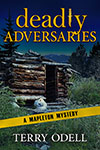 Gordon Hepler, Mapleton’s Chief of Police, has his hands full. A murder, followed by several assaults. Are they related to the expansion of the community center? Or could it be the upcoming election? Gordon and mayor wannabe Nelson Manning have never seen eye to eye. Gordon’s frustrations build as the crimes cover numerous jurisdictions, effectively tying his hands. Available now in ebook, paperback, and audio.
Gordon Hepler, Mapleton’s Chief of Police, has his hands full. A murder, followed by several assaults. Are they related to the expansion of the community center? Or could it be the upcoming election? Gordon and mayor wannabe Nelson Manning have never seen eye to eye. Gordon’s frustrations build as the crimes cover numerous jurisdictions, effectively tying his hands. Available now in ebook, paperback, and audio.
 Like bang for your buck? I have a new Mapleton Bundle. Books 4, 5, and 6 for one low price.
Like bang for your buck? I have a new Mapleton Bundle. Books 4, 5, and 6 for one low price.
New! Find me at Substack with Writings and Wanderings
 Terry Odell is an award-winning author of Mystery and Romantic Suspense, although she prefers to think of them all as “Mysteries with Relationships.”
Terry Odell is an award-winning author of Mystery and Romantic Suspense, although she prefers to think of them all as “Mysteries with Relationships.”













 One of the most amazing things about being an author is mingling within the writing community. Writers, as I’m sure you’ll agree, are some of the most generous, supportive, and kind humans on the planet.
One of the most amazing things about being an author is mingling within the writing community. Writers, as I’m sure you’ll agree, are some of the most generous, supportive, and kind humans on the planet. Do you really need to point out a typo in a tweet? We’re all fallible. Smile and move on.
Do you really need to point out a typo in a tweet? We’re all fallible. Smile and move on. I admit, when I first joined Twitter, an automated message to greet my new followers seemed like a good idea. Let me set the record straight—they are never a good idea.
I admit, when I first joined Twitter, an automated message to greet my new followers seemed like a good idea. Let me set the record straight—they are never a good idea.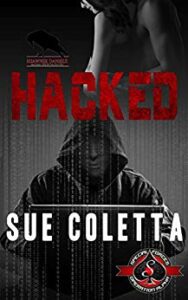
 Writers wear many hats… wife/husband, mother/father, sister/brother, friend, marketer, editor, (some add) publisher, (some add) cover designer, (some add) audiobook narrator, (some add) speaker, (some add) coach, housekeeper, bookkeeper, blogger, social media user/expert, tax preparer, holiday host, baker, cook, etc., etc., etc.
Writers wear many hats… wife/husband, mother/father, sister/brother, friend, marketer, editor, (some add) publisher, (some add) cover designer, (some add) audiobook narrator, (some add) speaker, (some add) coach, housekeeper, bookkeeper, blogger, social media user/expert, tax preparer, holiday host, baker, cook, etc., etc., etc.
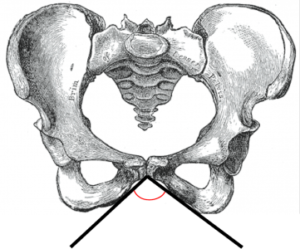
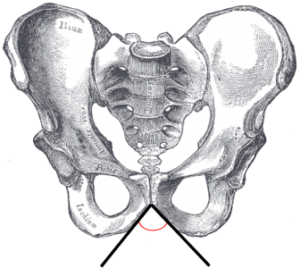
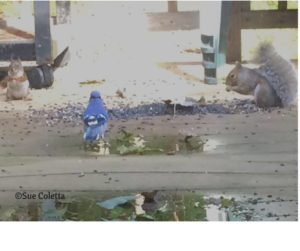

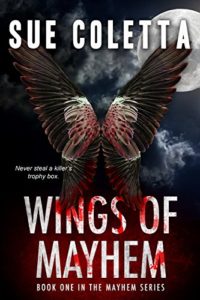
 The other day I jotted down a juicy detail from my research on the corner of yellow scrap paper. Hours later, after I’d used the tidbit in a scene, I spaced throwing away the note.
The other day I jotted down a juicy detail from my research on the corner of yellow scrap paper. Hours later, after I’d used the tidbit in a scene, I spaced throwing away the note.